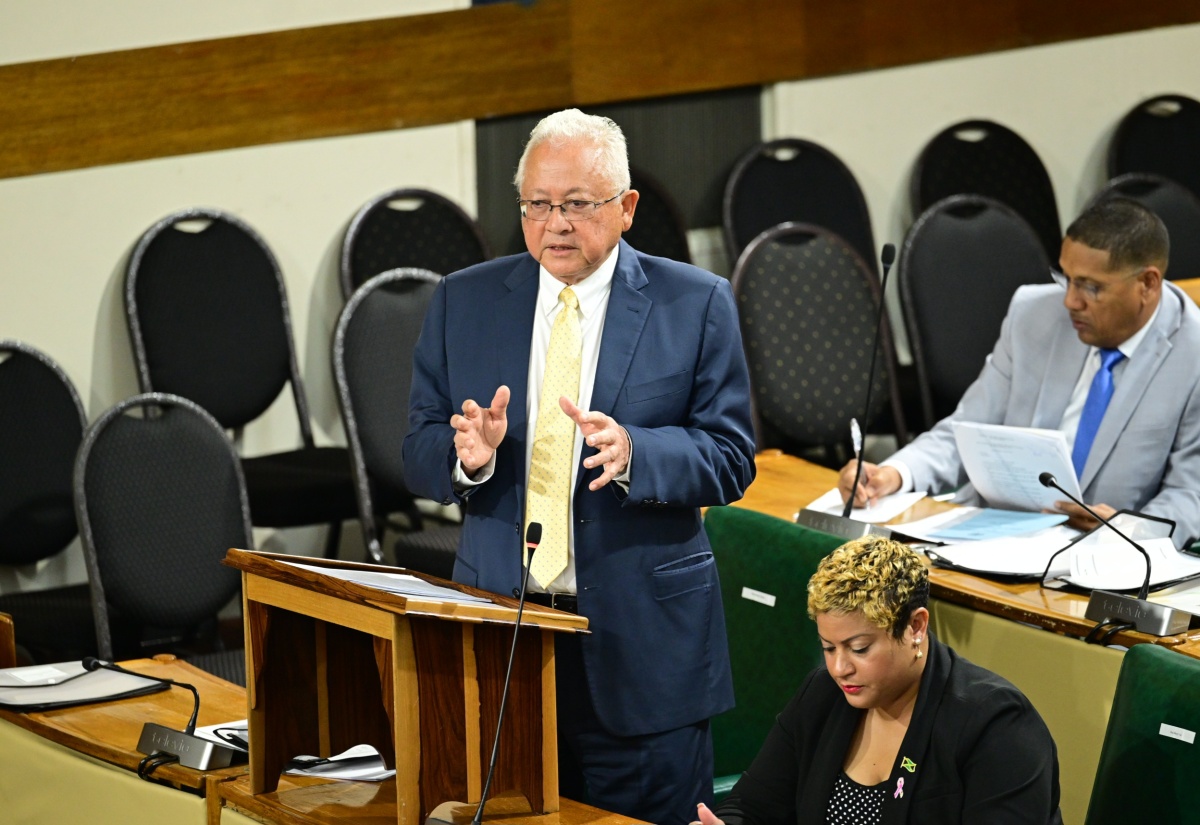House Begins Debate on Bill to Widen Access to Expungement
By: , October 17, 2025The Full Story
The House of Representatives began debate on the Criminal Records (Rehabilitation of Offenders) Act on October 14 which, among other things, seeks to widen access to expungement in potentially deserving cases.
Opening the debate, Minister of Justice and Constitutional Affairs, Hon. Delroy Chuck, said the critical piece of legislation represents a balancing act.
“We are seeking to give effect to the notion of second chances, whilst continuing to hold offenders sufficiently accountable for wrongdoings to the extent appropriate to the specific offences,” he explained.
“There may be those who feel that the proposed amendments do not go far enough in widening the categories of persons eligible for expungement. Conversely, there are others who may believe that no expansion should be contemplated at all. We welcome and encourage robust debate on this matter. As a Government, we are guided by the principle that we exist to give meaningful effect to the will of the people, and to shape policy in a manner that reflects both justice and the evolving values of our society,” the Minister said.
Mr. Chuck said the amendments are deliberate, proportionate, and reflect a justice system that is both accountable and compassionate.
“They are rooted in the belief that individuals who have paid their debt to society and demonstrated true rehabilitation, deserve an opportunity to fully reintegrate and contribute to national life,” he argued.
Opposition Spokesperson on Justice, Zulieka Jess, welcomed the raft of proposed amendments and recommended that clauses be included to further address non-custodial offences as well as to permit the Board to hold meetings via remote hearing to increase the frequency of meetings held.
“As it relates to non-custodial offences, and if we are bold enough, offences which do not carry a conviction of greater than five years, perhaps it might be wise to consider having those matters automatically expunged, because what that will do is to relieve the system of some of the backlog which currently obtains,” she suggested.
Among the provisions of the Bill is Clause 2 which amends Section 3. This clause increases the sentence threshold for eligibility for expungement from five years to 10 years.
It allows the Criminal Records Rehabilitation of Offenders Board to consider applications from persons who served sentences of more than five but not more than 10 years, thereby widening access to expungement in potentially deserving cases.
Clause 8 sets out a non-exhaustive list of factors the Board may consider when assessing an application.
These include the nature and gravity of the offence, social enquiry and psychological reports, demonstrated remorse or restitution, and age at the time of the offence. This framework ensures that the Board’s decisions are grounded in transparency, fairness, and evidence of rehabilitation.
Clause 9 amends Section 28A and introduces automatic expungement for certain old, non-custodial convictions; specifically, offences with non-custodial sentences imposed and satisfied before
January 1, 2005, where the individual has not been convicted of another offence. This provision recognises that persons with minor, dated convictions should not have to bear that burden for life as well as have to undergo the expungement process to clear their name.
Clause 11 expands the membership of the Board from between three and five members to between seven and nine members and adjusts quorum requirements accordingly.
It also updates the list of prescribed members, including nominees from the Commissioner of Police and Commissioner of Corrections. This will ensure that the Board is adequately resourced to meet its growing responsibilities.
Clause 12 amends the list of offences that are excluded from expungement. Among the changes are the removal of certain minor property offences and offences under the Dangerous Drugs Act.
This is in line with the example set in The Bahamas and the global softening of the position concerning redeemability of individuals.
“People must be given a second chance where they have shown that they are reformed, rehabilitated and they want to go straight. Many of these persons are suffering and have suffered because they can’t get promotion, they can’t get a job, they can’t get a farm work ticket and they can’t do many things, so the opportunity is now being opened up for them,” the Minister said.
Debate on the Bill was suspended and is expected to continue at the next sitting of the House.




